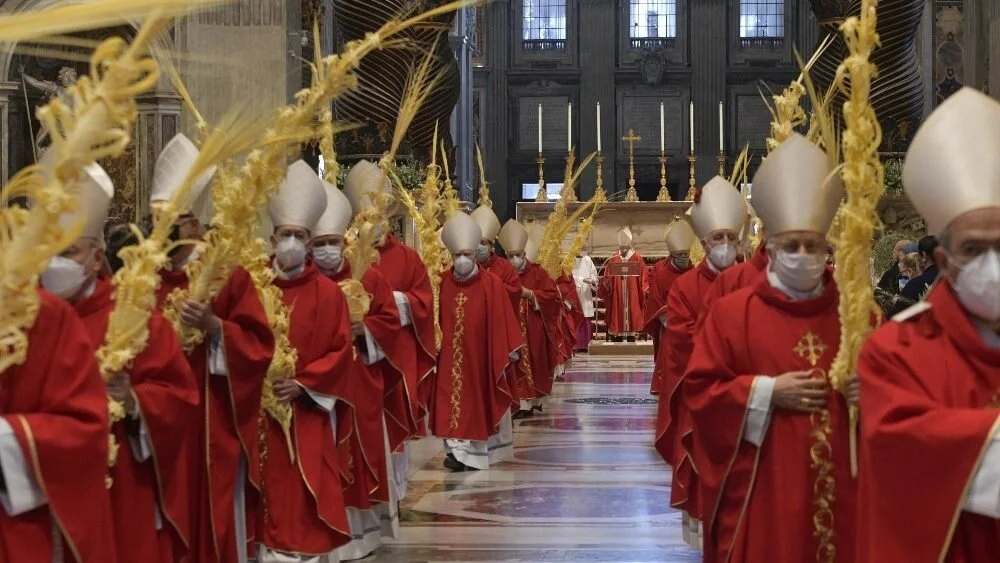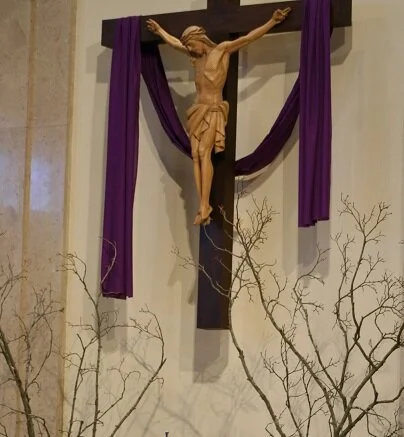Answers to Key Ethical Questions
About COVID-19 Vaccines
The development of vaccines to combat the COVID-19 pandemic has received much public attention and raised several ethical questions related to their development and use. This document is intended to provide concise answers to some of those ethical questions as well as links to more in-depth resources.
Is it true that there is a connection between some vaccines and abortion?
Yes. Several decades ago, tissue harvested from the bodies of aborted babies was used to create certain cell lines for research purposes. The cells in these lines are, in effect, the descendants of those cells that were originally harvested. They have been made to replicate themselves and some cell lines can be reproduced indefinitely. These abortion-derived cell lines are used as a “factory” to manufacture certain vaccines (e.g. rubella, chickenpox, some of the COVID-19 vaccines, etc.).i The cells themselves, however, are not present in the vaccines that patients receive.
What does the Church say about abortion-derived cell lines and their connection to vaccines?
The Holy See, through the Congregation for the Doctrine of the Faith and the Pontifical Academy for Life, has provided guidance on this topic on four occasions.ii This guidance has made it clear that it is wrong to create abortion-derived cell lines and for pharmaceutical companies to utilize them, that the use of vaccines produced with such cell lines should be avoided if comparable alternatives with no connection to abortion are available, that grave reasons (e.g., serious health risks) may justify the use of vaccines produced with these cell lines when there are no such alternatives, and that everyone concerned for the sanctity of life should protest the use of these cell lines and advocate for the development of vaccines with no connection to abortion.
Do COVID-19 vaccines use abortion-derived cell lines?
As of the date of this writing, hundreds of vaccines for COVID-19 are in development worldwide, and more than a dozen are in the final stages of testing. Some don’t use abortion-derived cell lines at all, some have used such cell lines to test the vaccine’s efficacy, and some are using such cell lines in the development and/or the production phases. There are currently two vaccines (Pfizer and Moderna) being distributed for use in the United States, and there are others that are likely to be made available in the coming months (e.g., AstraZeneca, Janssen, etc.).iii Neither Pfizer nor Moderna used an abortion-derived cell line in the development or production of the vaccine. However, such a cell line was used to test the efficacy of both vaccines. Thus, while neither vaccine is completely free from any use of abortion-derived cell lines, in these two cases the use is very remote from the initial evil of the abortion. The AstraZeneca and Janssen vaccines raise additional moral concerns because an abortion-derived cell line is used not only for testing, but also in development and production.
Is it morally acceptable to receive a COVID-19 vaccine that uses abortion-derived cell lines?
Given that the COVID-19 virus can involve serious health risks, it can be morally acceptable to receive a vaccine that uses abortion-derived cell lines if there are no other available vaccines comparable in safety and efficacy with no connection to abortion. If it is possible to choose among a number of equally safe and effective COVID-19 vaccines, the vaccine with the least connection to abortion-derived cell lines should be chosen.iv If a vaccine with no connection to abortion-derived cell lines is not readily available, vaccines that used such cell lines only for testing would be preferable to those that use such cell lines for ongoing
production. Such choices may not be possible, however, especially in the early stages of vaccine distribution. In that case, one may receive any of the clinically recommended vaccines in good conscience with the assurance that reception of such vaccines does not involve immoral cooperation in abortion.v
Is there a moral obligation to receive a COVID-19 vaccination?
The Congregation for the Doctrine of the Faith has noted recently that “vaccination is not, as a rule, a moral obligation and that, therefore, it must be voluntary. In any case, from the ethical point of view, the morality of vaccination depends not only on the duty to protect one’s own health but also on the duty to pursue the common good.”vi And it said that “in the absence of other means to stop or even prevent the epidemic” vaccination may promote the common good, “especially to protect the weakest and most exposed.” For a vaccine to be effective in protecting society, most people need to be vaccinated in order to break the chain of disease transmission from person to person throughout the community. The Congregation also said that those who refuse to get vaccinated must do their utmost, by taking all the necessary precautions, to avoid “becoming vehicles for the transmission of the infectious agent. In particular, they must avoid any risk to the health of those who cannot be vaccinated for medical or other reasons, and who are the most vulnerable.”
What can those who uphold the sanctity of life do to protest against the use of abortion-derived cell lines and advocate for ethical vaccines?
First, inform yourself and others about how some vaccines are connected to abortion through the use of abortion-derived cell lines, and about which vaccines use such cell lines. Second, inform your doctor about this connection and ask him or her to provide ethical vaccines, when possible. Third, urge pharmaceutical companies and medical researchers to discontinue using abortion-derived cell lines, and thank them when they do.vii
Are the COVID-19 vaccines safe and effective?
The bishops are not and do not claim to be authorities on the safety and efficacy of vaccines. People should rely on information from authoritative sources in the field of medicine and public health, such as the Food and Drug Administration and qualified health care professionals. The FDA affirms that the vaccines authorized for emergency use in the U.S. have met all the safety and efficacy standards required for such authorization.
Where can I find more information on this topic?
United States Conference of Catholic Bishops (www.usccb.org/prolife/biomedical-research) National Catholic Bioethics Center (www.ncbcenter.org)
Charlotte Lozier Institute (www.lozierinstitute.org/category/genetics)
i See Charlotte Lozier Institute at www.lozierinstitute.org/category/genetics.
ii Congregation for the Doctrine of the Faith, Instruction on Certain Bioethical Questions (Dignitas Personae) (2008), nos. 35-36 and “Note on the morality of using some anti-COVID-19 vaccines” (21 December 2020).
Pontifical Academy for Life, “Moral Reflections on Vaccines Prepared from Cells Derived from Aborted Human Foetuses”, (9 June 2005); and Note on Italian Vaccine Issue (31 July 2017).
iii https://www.hhs.gov/coronavirus/explaining-operation-warp-speed/index.html; https://www.defense.gov/Explore/Spotlight/Coronavirus/Operation-Warp-Speed/.
iv As of the date of this document, there are no available COVID vaccine options that are completely free from a connection to abortion-derived cell lines. But there are some COVID vaccines in development that may end up free of such connection. v Congregation for the Doctrine of the Faith “Note on the morality of using some anti-COVID-19 vaccines” (21 December 2020), no. 3.
vi CDF Note no. 5.
vii The USCCB Pro Life Office helps with such advocacy through the USCCB Action Center. To receive action alerts, sign up at www.usccb.org/prolife/biomedical-research.










































